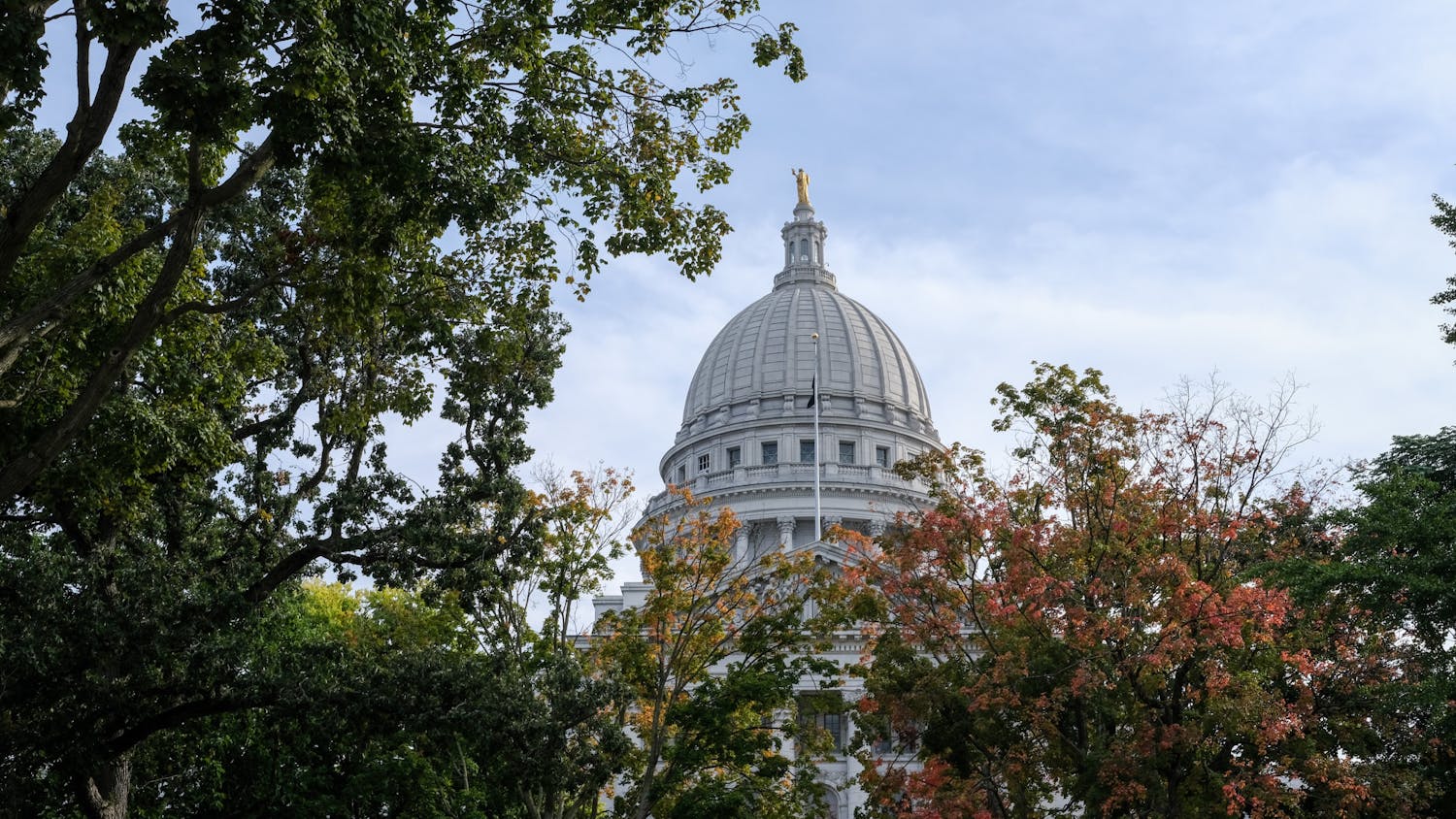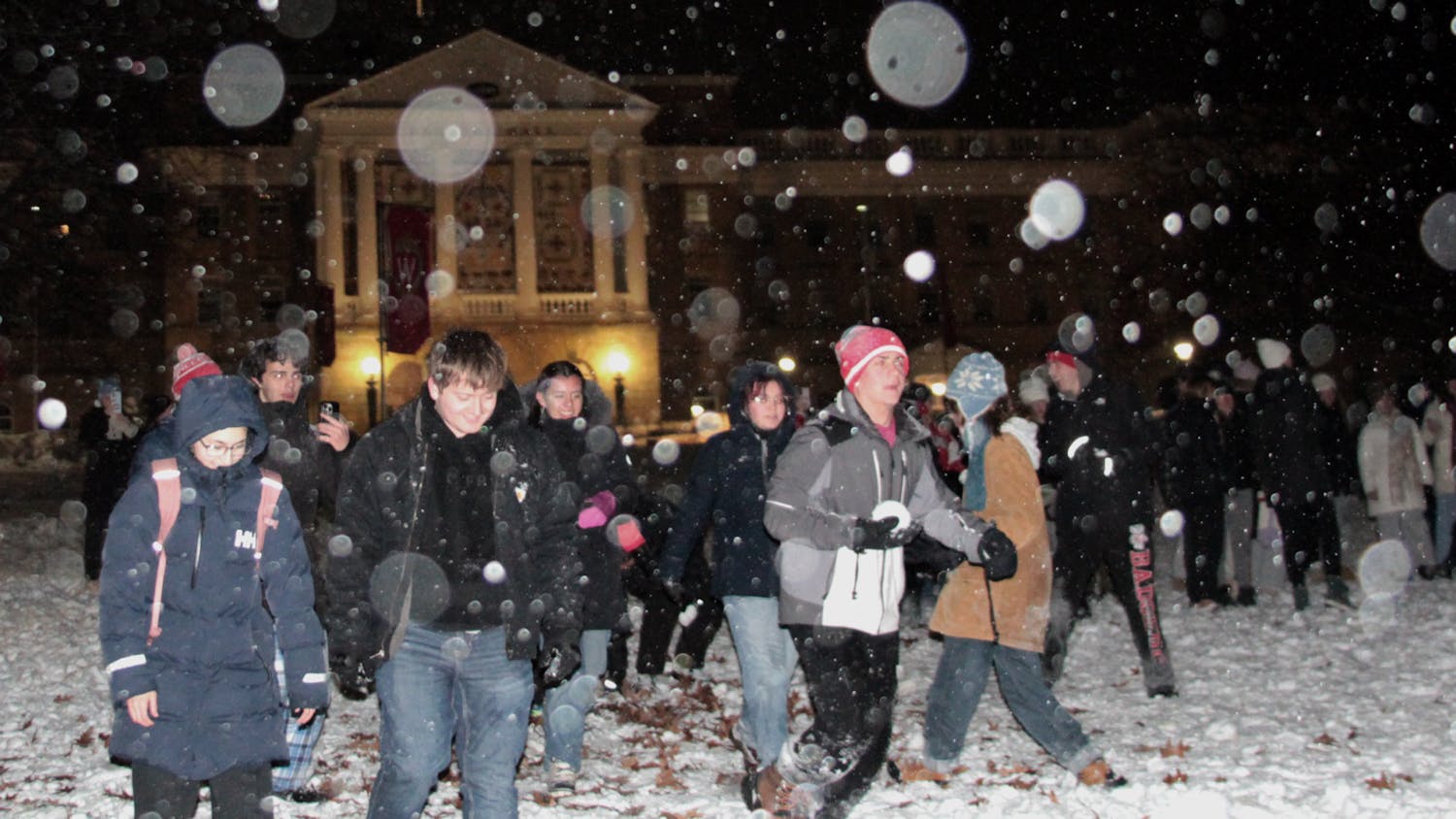On a vibrant blue sign propped up against the porch of the MeChA House — the university community center for the Chicanx and Latinx community — the words “Don’t tear us down” are written in thick, block lettering over an image of the state Capitol.
Students who spend time at that house and at the American Indian Cultural Center on Brooks Street understand that sign’s sentiment. They believed the university had plans to replace their houses with a green space and parking lot by 2020.
“We haven't heard much, only that it’s happening in 2020,” said MeChA coordinator Lucero Serna. “We’ve heard rumors, but we’re not sure where they’re coming from.”
But according to Campus Planning and Architecture Director Gary Brown, rumors that both houses will be torn down are premature.
“There is nothing specifically planned for where MeChA and Wunk Sheek are,” Brown said. “There’s no timeline, it’s just something that’s in the 2015 Master Plan.”
A Campus Master Plan is drafted every 10 years and it guides campus development projects during that time. The 2015 Master Plan, which is still in the final phases of its approval process, recommended development on the block bounded by Brooks, Park, Dayton and Johnson Streets, where MeChA and Wunk Sheek are headquartered. A similar project was outlined in the 2005 version.
However, not all the land on that block is owned by the university. Until the Board of Regents acquires those additional properties, any development on that block would be limited in scale and likely not affect those organizations.
The university’s six-year capital plan also requests a parking facility for the upcoming 2019-’21 biennium in the block south of Grainger Hall. If approved, that project could go into design in 2019 and be under construction in late 2020 at the very earliest. But according to Brown, if the regents don’t acquire all the land by July 2019, that project likely wouldn’t move forward.
In addition, a proposal to build a new Humanities Center is currently scheduled for the 2021-’23 biennium. That project needs private gift funds to proceed but could go into pre-design in 2020. If the gift funds are not in hand by July 2021, that project would be deferred, Brown said.
“There is a lot to do before we can move forward on any project in the block south of Grainger Hall,” Brown said. “We’re talking with donors to see if we can get that funding. It hasn't moved forward right now, but we’ll see if donors are interested in the next couple of years.”
In the last round of planning, Facilities Planning and Management scheduled over 265 meetings between 2015 and 2017 associated with the Master Plan process. Brown said organizations from neighborhood associations to city councils to the Associated Students of Madison and Faculty Senate were included in the outreach initiative. His department also hosted several open community forums to discuss the projects.
“We have a very robust outreach program,” Brown said. “We met with ASM right away to talk to them about what our goals were and there was plenty of opportunity for student groups to get involved and ask questions.”
In all, he estimates he met with ASM five times to discuss the master plan.
Yet members of Wunk Sheek only learned about the plan earlier this semester, and the information they received was false.
“I was really upset when I found out they were tearing our house down,” Wunk Sheek Co-president of Fiscal Relations Collin Ludwig said. “I wish the university could look for parking spots in places that won’t affect students of color."
He also said he wishes the university would have been more transparent during the planning process.
“We shouldn’t be relying on rumors or third parties to find out what is happening,” he said. “I just want the university to be more communicative with the native community and other people of color on this campus.”
Steady student turnover may be one factor that contributed to the miscommunication, said MeChA coordinator Ana Marin. She also noted that, while information may be available, students who do not understand its technical context may draw the wrong conclusions.
“The university should have in mind that students come and go, so information needs to be reiterated year to year,” she said.
Serna added that, on a campus where her community frequently encounters racial violence, losing the MeChA house would mean losing one of the only places she feels safe.
“This is one of the few places where we feel like we have a place of our own, where we have agency, where we are welcome,” Serna said. “If the university doesn’t have any definitive plans, they need to reassure us by letting us know, and we need to know that we’ll get another space once that does happen.”
Brown said that when the time comes to develop, he is ready to listen to student voices.
“We can commit to working with the current university occupants in that block to assure them that they will have a place to call home during and after the transition period,” he said.






